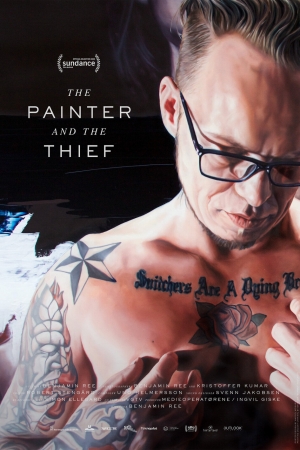 Web of Evidence/Beyond This Place
Web of Evidence/Beyond This Place, 1959
In the middle of a bombing raid in WW2, a woman is murdered. 20 years later, Paul Mathry (Van Johnson) arrives in England from America. He was evacuated to America during the War and believed his father had died. Paul is shocked to find that his father is not only alive, but was 20 years earlier convicted of the murder. Paul sets out to learn about the case and begins to uncover some unsettling truths.
Talk about a movie with an identity crisis!
The beginning of this film is really striking with the chaos of the air raid providing cover for the murder (I'm blanking on the name, but there's a TV movie from a few years back with this premise of someone using air raids as a cover for killings). And Paul's arrival and shock is also reasonably compelling. But then the film just splits into so many different parts.
On one hand we have Paul and his investigation, talking to detectives and witnesses. On the other hand we have some shady conversations between the prosecutor and his cronies that lets us know something is up. On top of that we have a subplot about a tentative romance between Paul and a (very obviously traumatized) woman named Lena (Vera Miles) in whose boarding house he is staying.
From a mystery point of view, this film is decently satisfying. It is kind of fun watching Paul track down various witnesses, uncover inconsistencies, and come up against the "system". Because the film incorporates other subplots (especially the romance and later Paul's attempt to actually track down his father), the momentum of the investigation tends to stop and start a bit. There are a lot of conversations in similar looking rooms, and also several conversations that seem to cover the same ground over and over.
Overall this could have been a passable, if a bit subdued, mystery thriller. But the romance . . . yikes.
Paul immediately develops a "vibe" with Lena, one of the women working in the boarding house where he is staying. Right from the beginning when Lena tells another worker that she is nervous about going upstairs alone to deliver a cup of tea it is glaringly obvious that she has been the victim of violence/sexual violence. Then we are subjected to numerous sequences that follow the same pattern--Paul, uninvited, tries to get physically intimate with Lena (trying to kiss her, trying to suck blood out of her cut finger (?!?!)) and Lena pulls away in fear and Paul gives her a look like a puppy that just got kicked. He's just SO CONFUSED. Eventually, another male character tells Paul about the fact that Lena was gang raped, and Paul's response is to run straight to Lena and GRAB HER AGGRESSIVELY and KISS HER and tell her it "DOESN'T MATTER" (?!?!?!). Vera Miles gives a good performance as Lena, but this whole subplot is so stupid and so offensive and it simply doesn't fit with the rest of the film. Paul's treatment of Lena is supposed to come across as "oblivious nice guy", but instead reads more like "petulant entitled dip". The fact that these scenes grind the film to a halt each time only adds insult to injury.
And without getting into spoiler territory, the ending when it finally arrives is very unsatisfying. The conclusion of a mystery should feel like it has naturally built from what came before. While in some ways that is technically true of the solution, there is another way in which it feels like a bit of a cheat and as if parts of it come out of nowhere. The end of the film feels both overdue, but also provoked a bit of a reaction of "Oh, that's it?". It doesn't help that Paul became less sympathetic to me the longer the movie went on. His story is compelling, of course, but as a character he feels poorly defined. Some scenes later between him and his father have a bit of heft, but it's too little too late.
This isn't, like, a horrible movie. But there is very little to recommend it aside from Vera Miles' performance.







